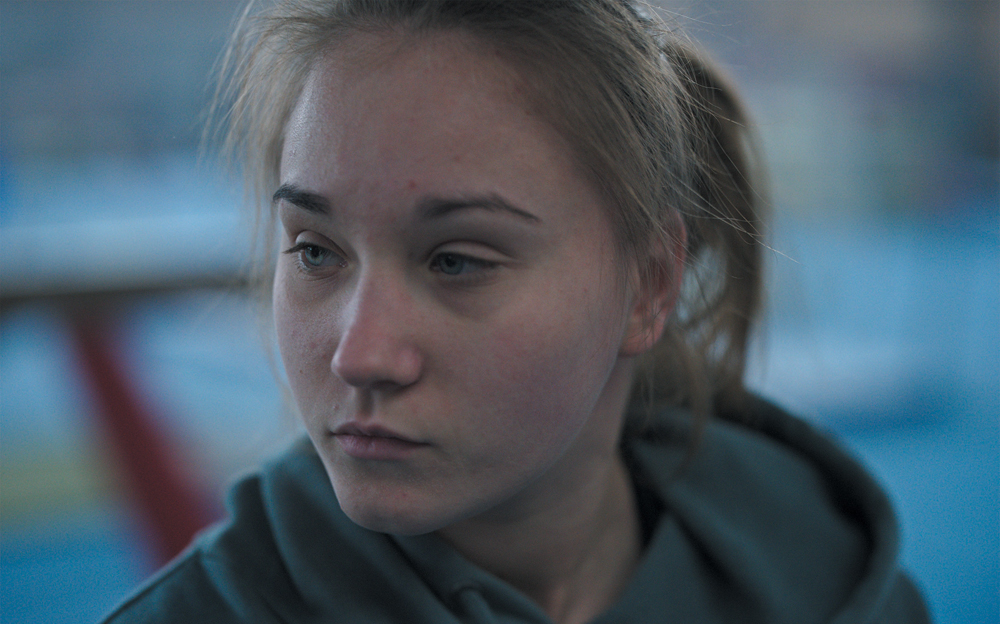The Ukranian gymnast (Anastasia Budiashkina) at the center of “Olga” isn’t rattled easily, trained to let nothing to distract her from the parallel bars or her floor routine and largely unfazed by growing rebellion against President Viktor Yanukovych’s plans to scuttle an agreement for the country to join the European Union when the film is set in the fall of 2013. No doubt Olga’s focus has come from her mother Ilona, who is intimately familiar with the political unrest as a journalist covering Yanukovych and neither lets the other into their life that much as both spend their days doggedly pursuing their passions. However, that is all thrown into disarray on a drive home early in Elie Grappe’s compelling character study as Ilona’s car spins out while driving her daughter home from a practice, immediately suspecting that henchmen for Yanukovych have targeted her to stem her reportage.
No one is badly hurt from the collision, but the small cut on Olga’s arm leads to a deeper tear when she is sent away to Switzerland out of an abundance of caution, though Grappe and co-writer Raphaëlle Desplechin suggest that what may be thought of as protection can bring its own dangers. While Olga can still pursue her goal of competing in the Euro championships, it’ll be for a different national team than the one she had expected, having a claim to citizenship through her late father. Still, Olga has no one around and only limited French to draw on as she has to nudge her way into an already crowded locker room of young women, all hoping to take a spot on the team and although the jockeying for position never gets too ugly, a feeling of isolation sets in that Olga can’t ignore with additional pressure coming from the Ukraine where the news sounds worse and worse.
Grappe crudely interjects TV broadcasts from the actual time of Ukrainians flooding the streets in protest as if the jagged edges of it all can pierce Olga’s concentration and even if Budiashkina weren’t a real gymnast — the director often films at a distance when no body doubles are needed — she’s quite convincing as she’s increasingly conscious of what’s going on back home as much as she tries to compartmentalize it, fearing for her mother’s safety. To make this juxtaposition work, Lucie Baudinaud’s cinematography is as crisp and precise in capturing movement as the gymnast is in executing them and “Olga” presents an endurance challenge to its lead where after being raised to disconnect from all the things that could take away from her dedication to the sport, the need to look beyond herself, feeling powerless in spite of all the strength she’s built up over the years, is truly devastating. Olga would never dare shed tears for herself, but Grappe is more than likely to wring a few from audiences as she reconciles her individual pursuit with a far larger struggle and as calls to “Free Ukraine” ring out around the world, looking deep within herself to find freedom of mind becomes quite a moving journey.
“Olga” will screen at Cannes as part of the Semaine de la Critique on July 9th at the Miramar at 5:15 pm and 10:30 pm and July 10th at 8:30 am at the Miramar and 8 pm at Studio 13.




